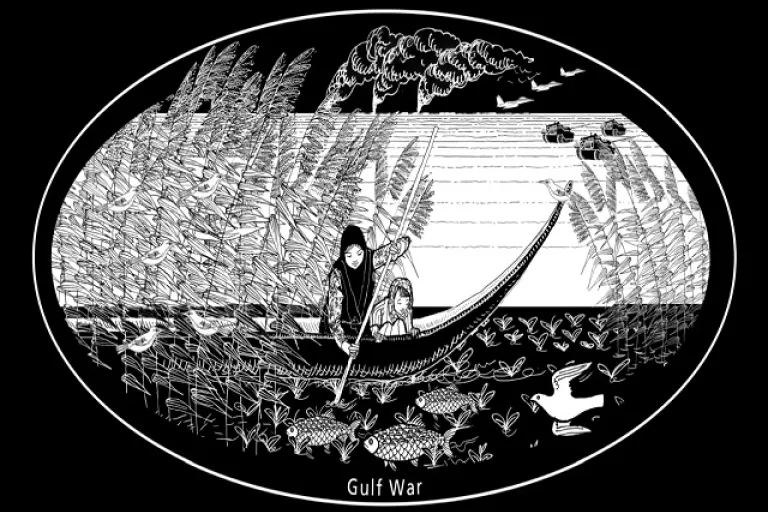Gulf

The Gulf War had a huge and lasting impact on the environment and the people of the region. The children of Braywood CE First School reflect this in their drawings of military equipment and burning oilfields and pleas for peace and protection of life.
The region has a fabulous and complicated history which is still unfolding; Mesopotamia, the Persian Empire, the relatively recent establishment of Kuwait, the people, geography, boundaries and wildlife. One area that links the past and present is the Mesopotamian or Iraq marshes. These are vast wetlands in the south of Iraq, an area known as 'The Cradle of Civilisation'.
The Ma'dan (Marsh Arabs) who lived there are understood to have settled in the region 5000 years ago. The draining of the marshes that began in the 1950s intensified in the 1980s and 1990s particularly under Saddam Hussein's regime for political and economic reasons. They were drained to 10% of their original capacity and the Ma'dan (who had resisted the regime) were decimated and fled.
This was also catastrophic for the ecology of the region. Post Saddam Hussein there are efforts to re-flood the marshes which, although complicated by dams and projects in Turkey, Syria and Iran, are slowly succeeding.
The panel includes the desert, tanks, planes and the burning oil fields of the conflict but are balanced by a cycle of regeneration in the marshes with reeds, water and the endangered Basra Reed Warbler, a small and endangered bird that depends upon the marshes. A woman and child manage a traditional mashuf canoe, enjoying seeing the fish in a way children in Windsor might also recognise and enjoy.